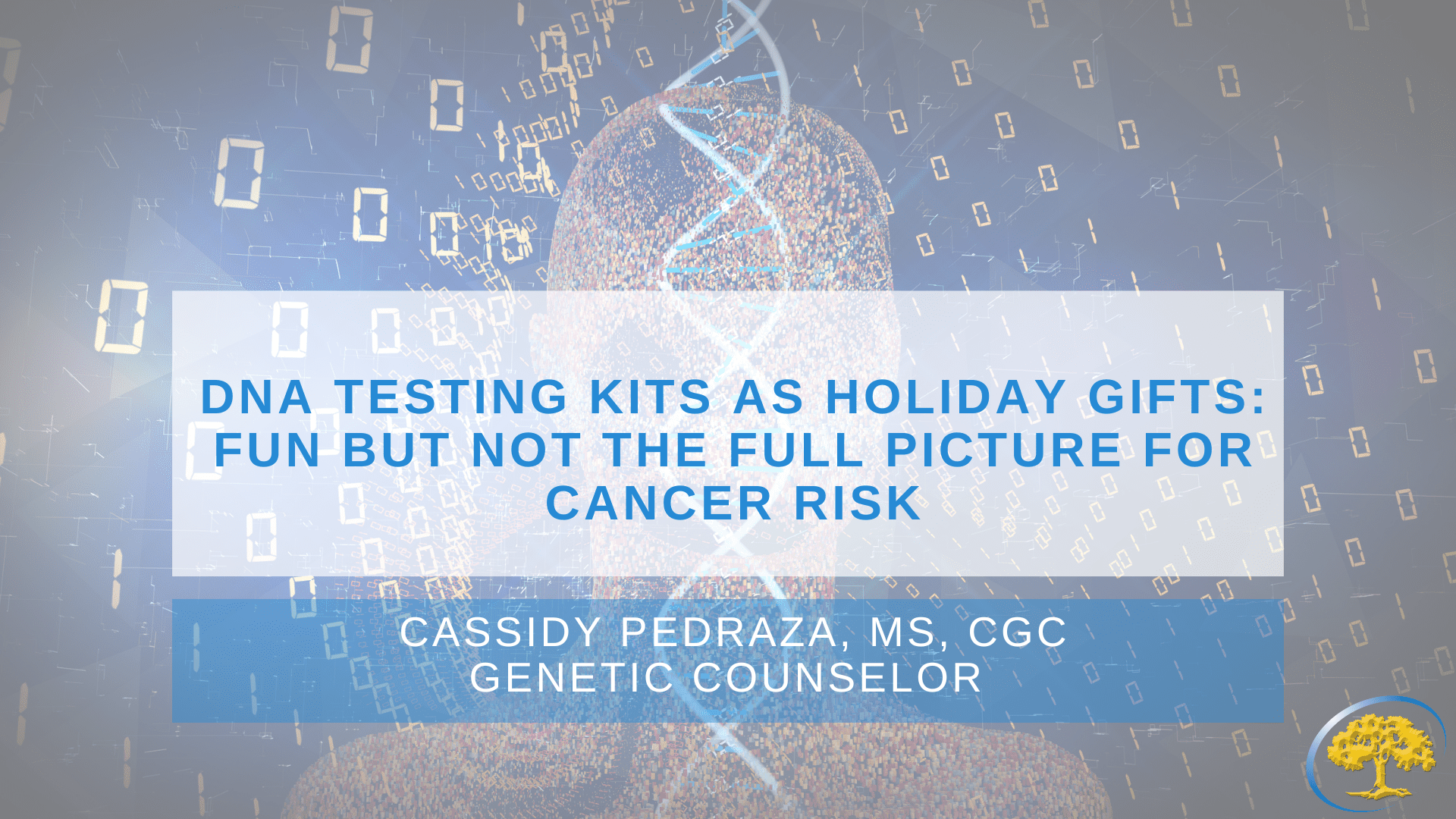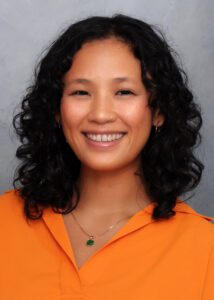
Posted 2 months ago
DNA Testing Kits as Holiday Gifts: Fun But Not the Full Picture for Cancer Risk
Every holiday season, people love gifting DNA testing kits so friends and family can learn more about their ancestry, genetic traits, and even some health insights. These gifts can be both fun and empowering, helping people discover more about themselves. Some of these DNA tests even offer limited information about hereditary cancer risks, such as breast, ovarian, and colon cancer. However, it’s important to understand the limitations of these tests so you know exactly how much information they can (and cannot) provide.
At-home or “direct-to-consumer” (DTC) DNA tests — like 23andMe or AncestryDNA — are designed to give general information. Some now include limited health reports that screen for a small number of well-known genetic changes (for example, a few specific BRCA1 and BRCA2 mutations linked to breast and ovarian cancer risk). However, these tests look at only a tiny portion of your DNA. Many report solely on the most common DNA changes in a few hereditary cancer genes, rather than examining the entire gene. In addition, the genes included may not be relevant to your personal or family cancer history.
While these tests are fun and fascinating, they can miss important genetic changes that a medical-grade test would detect, and they can produce false-negative or false-positive results. Even if an at-home test reports a positive result, it’s still essential to confirm that finding with a medical-grade genetic test.
If you have a personal or family history of cancer, or simply want to fully understand your genetic risks, meeting with a cancer genetic counselor or genetics specialist is the gold standard. Compared to at-home tests, medical-grade genetic testing offers more comprehensive analysis, examining entire genes rather than just a few common variants. A genetic counselor will also review your personal and family history to ensure the most appropriate test is ordered, interpret the results accurately, and help you process the information. They can also discuss what the findings might mean for your family members.
If you’re tempted to gift a DNA test this holiday season, go ahead — it can be a fun way to spark curiosity about genetics. Just remember to include a note or conversation about the limitations of at-home DNA kits, and how genetic counselors are truly the best resource to help you understand your cancer risk and receive the support you deserve
Cassidy Pedraza, MS, CGC
Cassidy joined Ironwood Cancer Center and Research Centers in February 2025. She obtained her Bachelor of Science in Biology with a minor in psychology from Cal Poly San Luis Obispo and her Master of Science in Genetic Counseling from Arizona State University. During her training at Arizona State, she completed several clinical rotations at various institutions including Banner, Mayo Clinic, Ironwood Cancer Center, and Phoenix Children’s Hospital. She is a member of the National Society of Genetic Counselors. Her interests in genetic counseling include cancer genetics and improving health care access. Outside of work, Cassidy enjoys traveling, spending time with her friends and family, and trying new restaurants.
Please ask your Ironwood Cancer & Research Centers doctor for a referral to see our genetic counselor.

